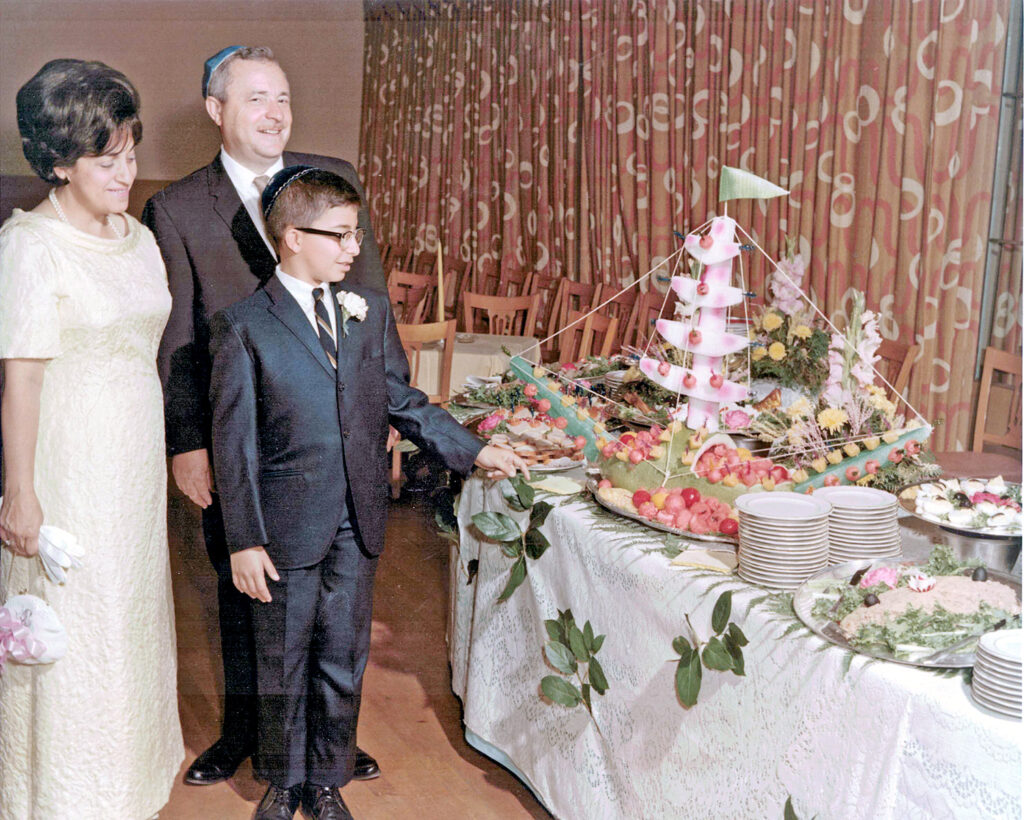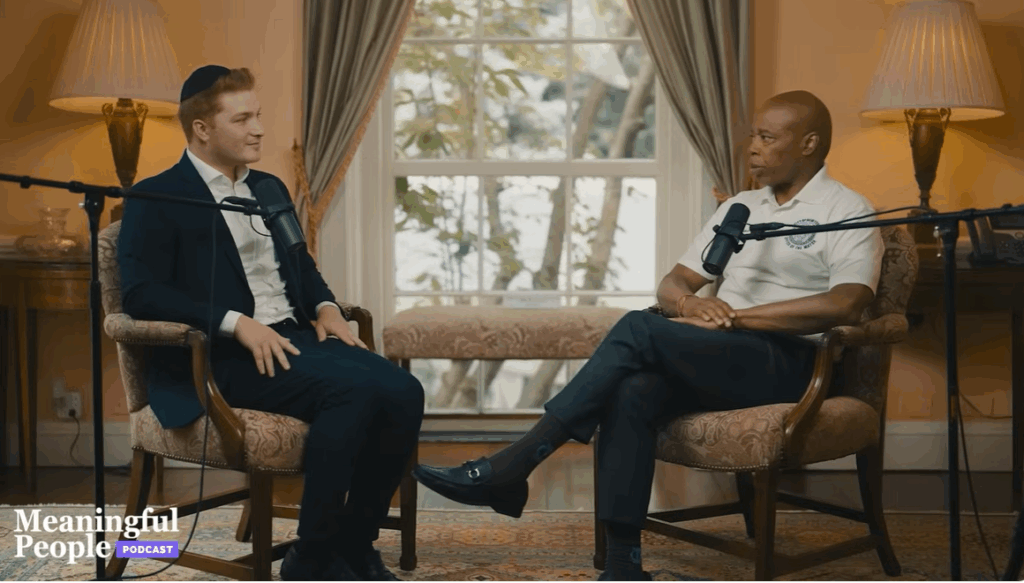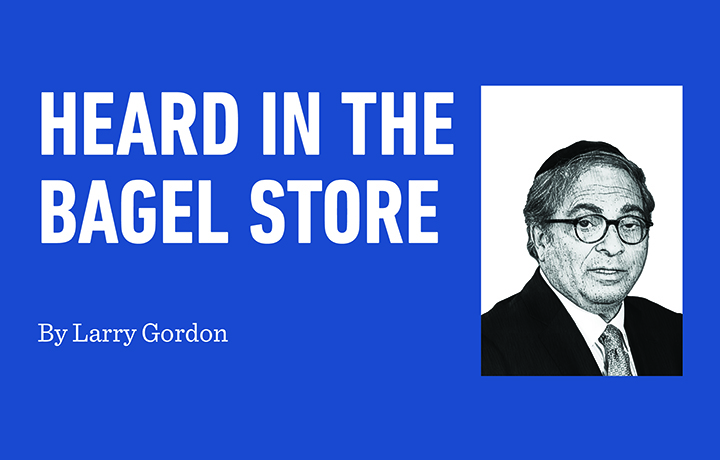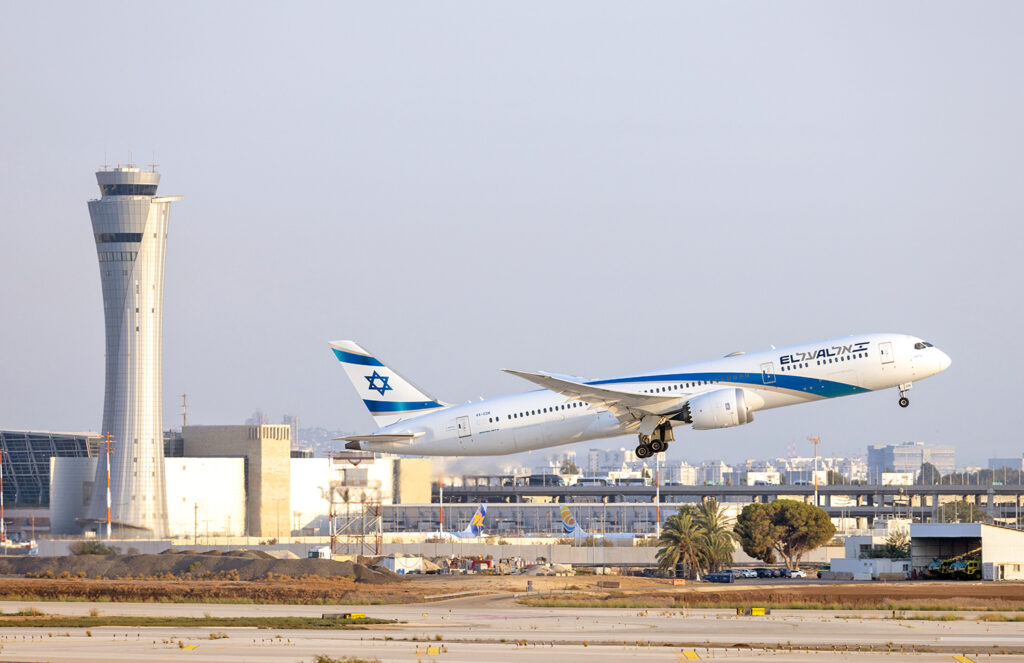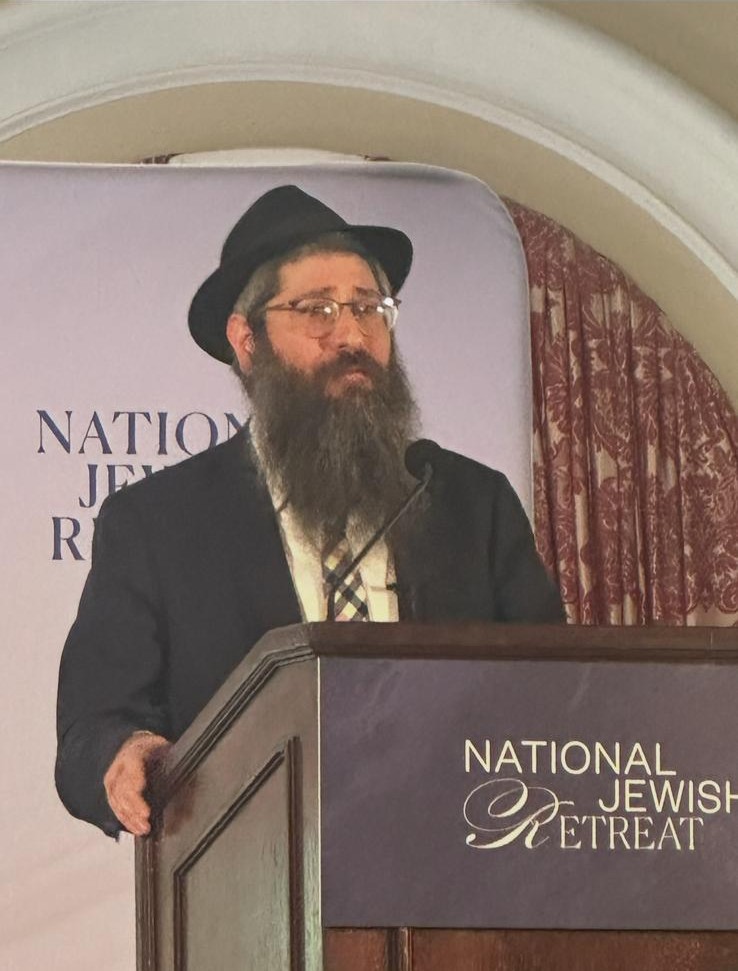Comfort Our People
By: Larry Gordon
Last week was an auspicious anniversary for me. It was the weekend of my bar mitzvah parashah and the Haftorah—Nachamu, Nachamu Ami, Console, console My nation, to put it in more biblical prose.
It was a great Shabbos way back then, Baruch Hashem, just as it was this past week all these years later.
When the prophet articulated this vision of the future, I don’t think he knew that Shabbos Nachamuwould turn into a highly celebratory Shabbos weekend that would one day evolve into a turning point in Jewish life. On second thought, he was a prophet, so he probably had at least an inkling of what was to come.
Shabbos Nachamu is a great day of consolation because it follows the Three Weeks of darkness and destruction—the low point in our annual calendar, which culminates with the mourning and fasting of Tishah B’Av.
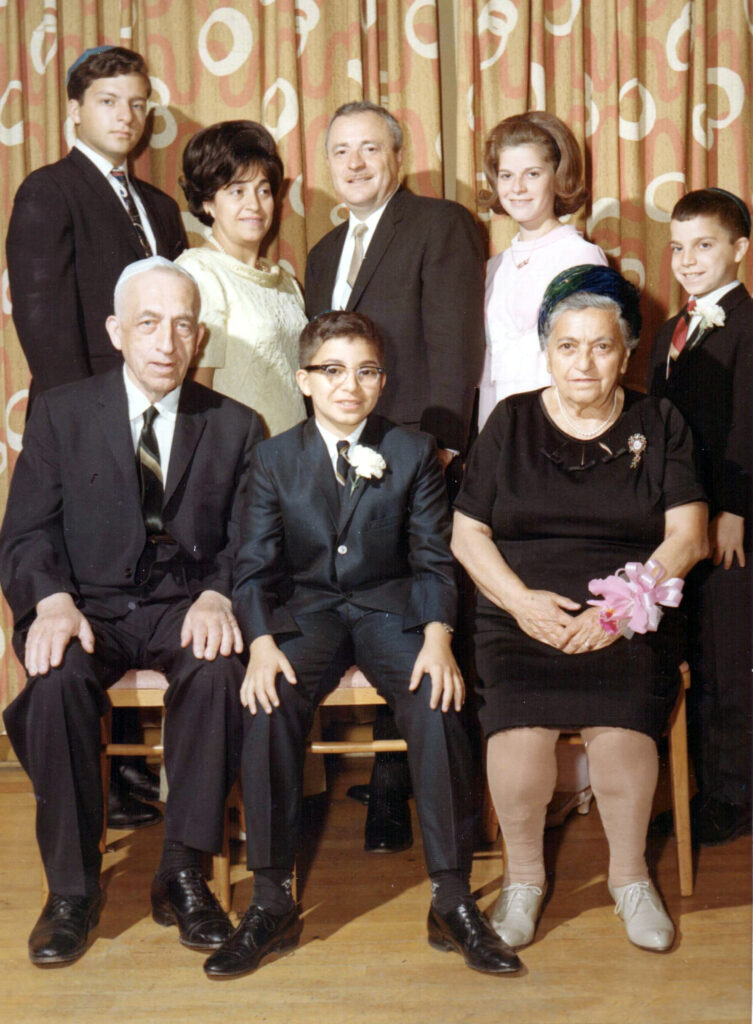
Bar mitzvah photo of Larry Gordon and family
There is a famous story about the notorious French leader Napoleon Bonaparte, who in 1798 was in the Middle East and happened upon a shul where most of the lights were dimmed and the people were sitting on the floor weeping. Napoleon asked a French officer what happened to them that made the people so downtrodden, weeping copiously on the floor.
The officer related to the French leader that 2,000 years earlier, the Jews had a Temple in Jerusalem that was twice destroyed. And he added that over all these centuries, the Jewish people set aside that one day every year to mourn the destruction. Napoleon reacted to the news, saying: “A nation that cries and fasts for over 2,000 years for their land and Temple will surely be rewarded with their Temple.”
Allow me to digress for a few lines and talk about the effort to create events that have one Shabbos Nachamu outdo the one that preceded it. And in a way, it’s imperative when you consider our history and challenges that we as a small but internationally prominent people have endured and continue to endure until this very day.
Somehow, we the Jewish people live with blatant contradictions. One day we are sitting on the floor or on a low chair weeping our losses, and a few days later we’re singing at Bethel Woods with Ishay Ribo and Avraham Fried. I wonder what Napoleon would have concluded had he seen that.
Interestingly, I don’t really remember the Tishah B’Av that preceded my bar mitzvah. I’m sure I fasted the full day, but I would have to look up how many days prior to Nachamu we observed the 9th of Av. Maybe it was the anticipation and excitement of our extended family getting together that eclipsed the memory of that year’s fast.
It was a great Shabbos with outstanding weather at a Catskills hotel that sadly no longer exists. I was the star of the show, sitting at the head of a long table with my mom and dad on either side of me. I was the second of three boys in the family, and my father must have been doing okay because he threw quite a weekend party.
The festive celebration was preceded by my reading from the Torah at the upstairs minyan at Chabad Headquarters at 770 Eastern Parkway. It was on the Thursday morning preceding Shabbos Nachamu, and I know I’ve recounted in the past how, back in the 1960s, the Lubavitcher Rebbe used to daven Shacharis in his study down the hall from our minyan.
On Mondays and Thursdays, he would step out of his study to hear the Torah reading until Sheni, which was our usual custom. On that Thursday morning of my bar mitzvah, the Torah reading the Rebbe heard was my own. And if I may say so myself, I read the parashah until Sheni that morning flawlessly. I hope the Rebbe, zt’l, was impressed.
The last time I recounted this story, a friend commented that this was not an honor that was bestowed on just anyone. He said he was fairly certain that my Zaide, R’ Yochanan Gordon, who was the gabbai at 770, was able to make that special arrangement. I guess you take what you can get.
While the Torah portion and the Haftorah are always read together in the immediate aftermath of Tishah B’Av, it’s always interesting to wonder and analyze why there exists a double use of the word Nachamu as in “Nachamu, Nachamu Ami, says Hashem.”
Even though these are the words of the prophets, in this case Isaiah, it is well-known that the word usage in Tanach is economical. The Malbim explains that the repetition of the word Nachamu, comfort, represents two aspects of the word, both to console and encourage the Jewish people.
As the Malbim explains, the first use of Nachamu refers to consoling Am Yisrael on the destruction of our Holy Temples. The second use of Nachamu is to encourage us to look forward to the ultimate rebuilding of our third Beit HaMikdash.
At the same time, Rashi adds that the repetition of the word Nachamu is the Prophet Isaiah’s way of emphasizing urgency and certainty, doubling down on G‑d’s promise that our national consolation will indeed arrive soon.
The Lubavitcher Rebbe takes a deeper look at this expression, noting that the double use of the word Nachamu is meant to convey an intensified level of comfort after the destruction. In other words, as the Rebbe writes, it is not just about comforting our nation once, but offering a layered level of consolation that addresses the physical as well as the spiritual wounds we have incurred.
This week’s Haftorah, an addendum to Parashat Eikev, continues on the theme of consolidation from Hashem to the Jewish people. This message is very apropos for the times we are living through: the ongoing war in Gaza and the continued plight of the hostages, Rachmana litzlan. The idea, as expressed by Isaiah, is that if we ever feel lost or forgotten by Hashem, He has not forsaken us. As we recall one of the famous lines from the Haftorah: “As a mother can never forget her nursing child, Hashem will never forget the people of Israel.” It is a clear message of Divine love and constant remembrance.
Nachamu, Nachamu Ami.
Overall, this Haftorah is another step in the direction of comfort, reinforcing the idea that even after suffering, there is a promise of ongoing care and ultimate redemption. And the suffering experienced by so many in southern Israel and on the border of Lebanon has been difficult and intense. I think we are ready for some more Divine intervention, since so many of our people have experienced terrible suffering both in Israel and around the world.
There are many commentaries and explanations about Nachamu, Nachamu, Ami, but for me there is only one, which takes me back to that long-lost bar mitzvah weekend of my youth. It has been many years since then, but if I close my eyes, I can still conjure up how good it felt to experience that Shabbos weekend surrounded by the people I loved.
Perhaps it was only one small kid’s bar mitzvah, but it was a high point of my young life. The cessation of all the suffering of today and our ultimate redemption will be something special and extraordinary. But during that one moment—more than a half century ago—I might have caught a glimpse of what those days will be like when Moshiach comes. There’s so much to live up to and look forward to. May that long wait come to a conclusion very soon! n
Read more of Larry Gordon’s articles at 5TJT.com. Follow 5 Towns Jewish Times on Facebook, Instagram, and Twitter for updates and live videos. Comments, questions, and suggestions are welcome at 5TJT.com and on Facebook, Instagram, and Twitter.





